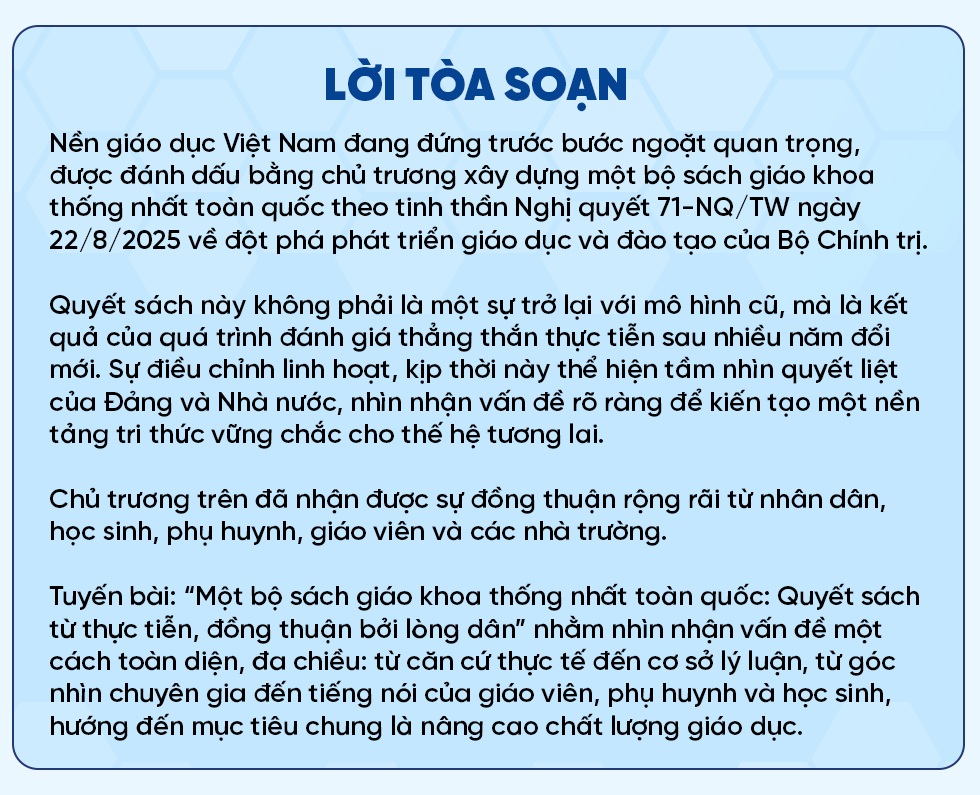
Educators and experts point out that the key solution lies in redefining the role of textbooks as the "backbone" of knowledge and building an independent national exam question bank to liberate teaching and learning thinking. In particular, the responsibility of teachers largely determines the success of this strategy.

From a management perspective, Mr. Huynh Thanh Phu, Principal of Bui Thi Xuan High School, Ho Chi Minh City, pointed out three shortcomings of the "one curriculum - multiple textbooks" model: financial burden, confusion of knowledge for students, and lack of a common standard for testing and evaluation. These shortcomings have created significant costs for parents and complexity for both learners and teachers.
In that context, Mr. Huynh Thanh Phu affirmed that the unified set of textbooks will serve as a "standard" or "backbone" of knowledge, creating a solid foundation for teachers and students to develop, rather than a rigid "mandate".
"Teachers will rely on this standardized set of textbooks to develop their lessons, while also proactively updating their knowledge and supplementing it with information from the internet and other sources to enrich the lesson content," the principal stated.
This helps teachers stay on track and avoid getting "lost" amidst too many textbooks, while also realizing the State's macro-management vision to ensure consistent educational quality nationwide.
National Assembly representative Duong Khac Mai ( Lam Dong delegation) also agreed that unifying a single set of textbooks is reasonable, practical, and economical. He emphasized that reform is necessary but needs to ensure stability, avoiding constant changes that make students and parents feel like they are being "experimented with."
According to him, the Government and the Ministry of Education and Training need long-term, fundamental solutions to ensure that each reform is sustainable.

Deputy Chairwoman of the National Assembly's Committee on Culture and Social Affairs, Nguyen Thi Mai Hoa, emphasized that having a unified national set of textbooks should not mean that schools should only use one set of textbooks; nor should it negate the possibility of socialized textbooks to create diverse learning materials that meet the needs of learners.
She noted that the "one curriculum - multiple textbooks" mechanism implemented in the past aimed at fostering flexibility and creativity in the implementation of the 2018 General Education Program.
Textbooks are considered learning materials for teachers to study, refer to, and create appropriate teaching materials; helping learners develop their own abilities and not rely on model answers.
However, Ms. Mai expressed her concern: "Unfortunately, this goal seems to have not been achieved, because in reality, teaching still mainly relies on lectures built on the basis of a pre-selected set of textbooks."
A unified set of textbooks would aim to establish common standards to ensure equitable access to knowledge.
"It is important to guide and encourage teachers and students to access other textbooks to enrich the content of teaching and learning. With the concept of 'study what's on the exam,' a high school graduation exam question bank that reflects this spirit will be an important driving force influencing the use of multiple textbooks for teaching and learning activities," said Dr. Nguyen Thi Mai Hoa.
Sharing this view, Mr. Nguyen Kim Hong - former Rector of Ho Chi Minh City University of Education - said that when the curriculum is clearly defined as the core issue, textbooks with their own materials and teaching resources do not affect the setting of exam questions and assessment.
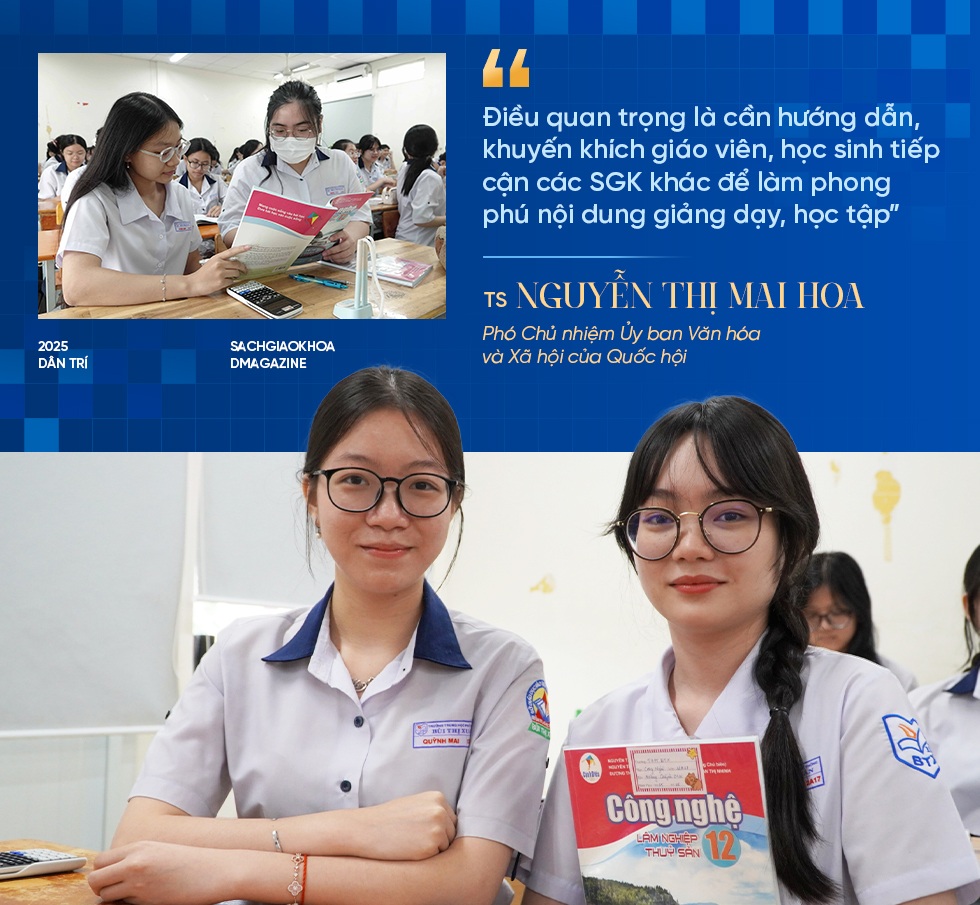
Most importantly, this requires the development of a national question bank and assessment system, and the application of technology to ensure fair and flexible testing and examinations.
"The curriculum and textbooks are related, but that doesn't mean that implementing a single set of textbooks means that the ideas of 'one curriculum - multiple textbooks' cannot be realized. They are not contradictory. Textbooks are just one of the means, content, and materials for teaching," Mr. Nguyen Kim Hong expressed.
Sharing that view, engineer Le Dung - an expert with many years of research on policy - emphasized the importance of building a question bank for exams.
Engineer Dung believes that because old habits are still deeply ingrained, the practice of limiting exam questions, providing sample answers, or rote learning still exists in some schools, as the power to create exam questions still rests with the school.
"To break down those limitations, completely liberate the educational mindset that relies on pre-provided 'cheat sheets,' and bring education back to its true nature, exam papers should be issued by an agency independent of the school," Mr. Dung proposed.
He proposed a model of randomly drawing exam questions among localities, moving towards an open national exam question bank, mobilizing the participation of schools nationwide.

In order for the unified set of textbooks to meet the requirements of Resolution 71, standardize and modernize in the era of integration, Mr. Le Ngoc Diep, former Head of the Primary Education Department, Ho Chi Minh City Department of Education and Training, believes that a set of textbooks that is merely "old wine in new bottles" cannot exist.
He emphasized that the unified set of textbooks must be modern, professional, and reflect Vietnamese identity. To achieve this goal, the Ministry of Education and Training needs to proactively implement the process, which must be both fast, cautious, and scientific.
In particular, he suggested that talented individuals both domestically and abroad should be invited to participate in the compilation process, in the spirit of "brainstorming," and absolutely avoiding parochialism and favoritism.
Mr. Diep also pointed out that textbook compilation requires a dedicated team, cannot be a "side job," and this process must be based on the ability to provide a synchronized supply of facilities and teaching methods.
Furthermore, the role of textbook authors is not limited to compilation but must also involve their involvement in the teaching process: continuously observing lessons, surveying and revising materials, and regularly updating their knowledge annually.
The author also plays a crucial role in supporting the teaching staff, from guiding them on how to design lessons and tests to fostering a reading culture among students.
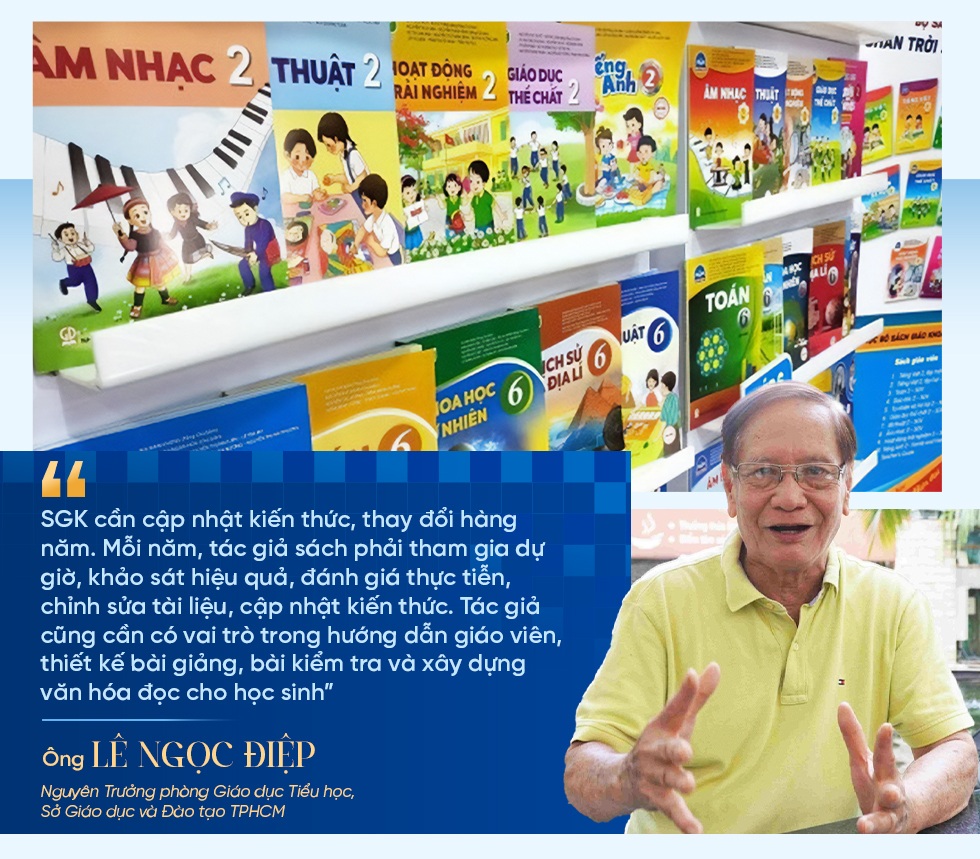
In addition, Mr. Diep emphasized other influencing factors and argued that textbooks cannot be compiled in isolation. The compilation must be based on the actual situation and the ability to meet the needs in terms of classroom facilities, teaching methods, support tools, etc. Everything needs to be synchronized to create a truly modern and effective learning environment.
In particular, he said that the quality of teachers must be improved, because even the best textbooks will not be effective if the teaching staff lacks the capacity to deliver the information.
Mr. Diep emphasized that this compilation process needs to closely adhere to the Central Party Committee's resolutions on education and training, namely: "Fundamental, comprehensive reform, standardization, and modernization in the era of integration." This is not only a task for the education sector, but also a shared responsibility of the entire society towards the future generations of the country.
Similarly, Mr. Nguyen Van Luc - a former teacher at Trinh Phong Secondary School, Khanh Hoa - suggested that the textbook development process should invite competent teachers to contribute to ensure that theory and teaching practice in each region are compatible.
"Teachers and leading experts in the field should compile textbooks to ensure that the theory and practice of teaching in each region are compatible with each level, so that students can acquire general knowledge more easily," Mr. Luc suggested.
Mr. Luc further emphasized the need to change the mindset that textbooks are merely learning materials. Even with a unified set of textbooks, teachers should still refer to existing books to avoid wasting knowledge, and explore other resources to make their lessons more engaging and effective.

At the conference summarizing and evaluating the results of the implementation of the curriculum and textbooks for the 2020-2025 period, held on October 17th, the Ministry of Education and Training announced that it had successfully implemented the policy of socialization for the first time, attracting 7 publishing houses and 12 joint-stock companies to participate in the compilation, with 3,844 authors nationwide.
The process of compiling, evaluating, approving, and selecting textbooks is carried out openly and transparently, ensuring quality. Local authorities also actively compile local educational materials, contributing to incorporating regionally specific content into schools.
Minister of Education and Training Nguyen Kim Son emphasized: "The education sector has completed a full cycle from grade 1 to grade 12, achieving both breadth and depth, meeting the goals of the new curriculum - a comprehensive reform at the general education level."
The new curriculum has many distinctive, "non-traditional" elements, requiring strong adaptation, shifting from knowledge transmission to the development of learners' qualities and competencies – a change with profound philosophical implications. Textbooks are also transformed from "knowledge packages" into open learning materials, helping teachers guide students in developing their competencies.
However, the Ministry also acknowledged that the compilation of textbooks according to the 2018 General Education Program (implementing one program - multiple textbooks; socializing textbook compilation) is being applied for the first time, thus encountering many difficulties from the design stage to the implementation stage.
The policy of socializing textbook compilation was implemented without prior experience, while the study and application of international experience was not widely applicable to our country's context; the participation of social forces in compiling textbooks according to the new curriculum nationwide has not met expectations.
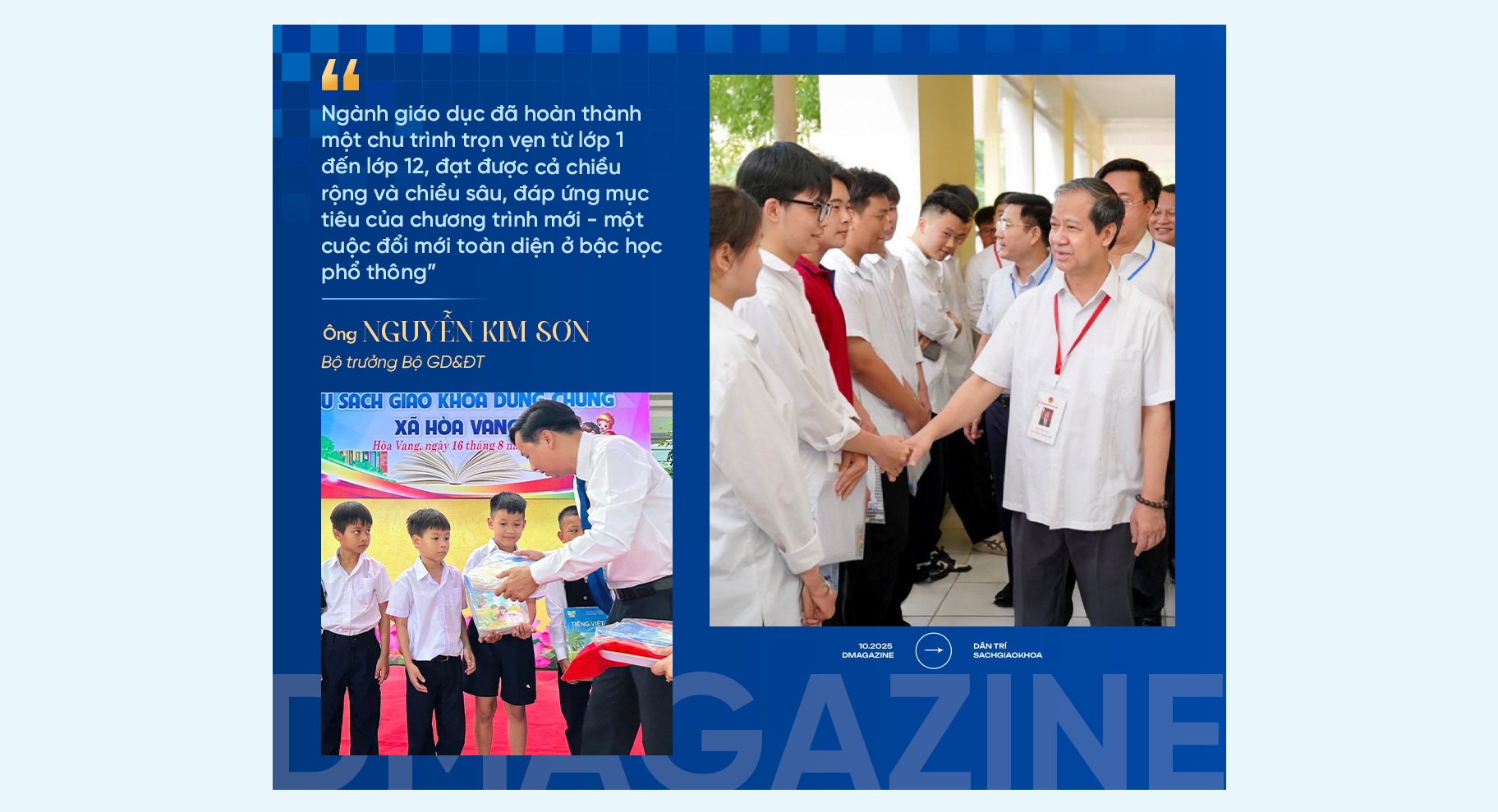
Regarding future tasks, Minister Nguyen Kim Son stated: "We must both maintain and improve what we have already done, while also preparing for the new phase."
Accordingly, the Ministry identified the tasks of reviewing, improving, and developing the program after a period of operation, implementing it in a scientific and systematic manner. Local authorities should continue to advise the government and pay more attention to the conditions for program implementation, including infrastructure, equipment, finance, and personnel.
Regarding textbooks, the Minister emphasized the preparation of a unified set of textbooks for nationwide use, to be implemented starting from the 2026-2027 school year.
"The compilation, evaluation, and promulgation of a unified set of textbooks will be carried out according to a strict and scientific process, building on the achievements of the previous phase while addressing existing shortcomings," the Ministry of Education and Training stated.
Regarding future plans, prior to the free provision of textbooks, the Ministry of Education and Training will develop and implement a plan to provide textbook support to students from disadvantaged families, students from poor and near-poor households, students in remote areas, ethnic minority students, and students from policy-eligible groups.
Source: https://dantri.com.vn/giao-duc/mot-bo-sach-giao-khoa-thong-nhat-toan-quoc-chuan-chung-de-phat-trien-20251029235426950.htm








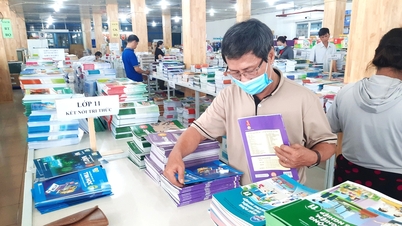

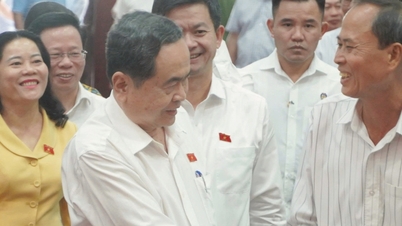
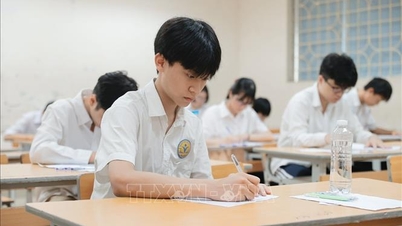

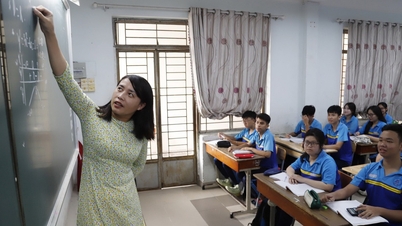
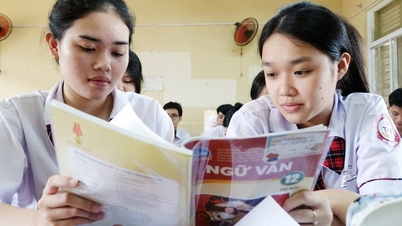



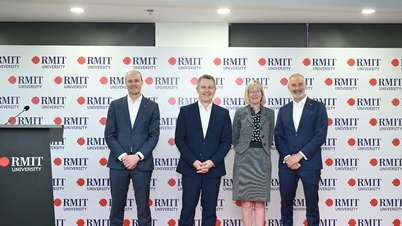















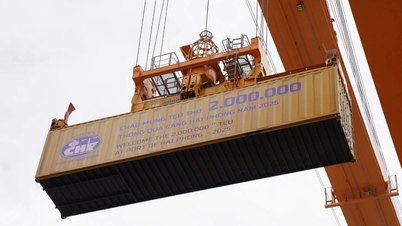






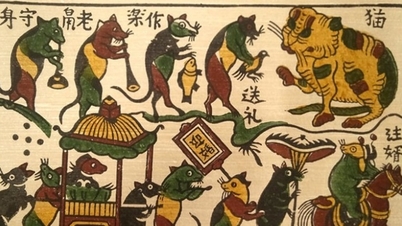




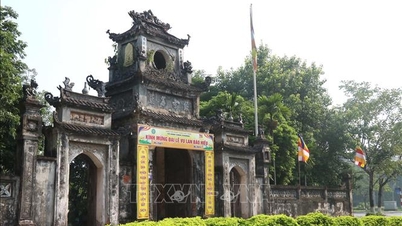




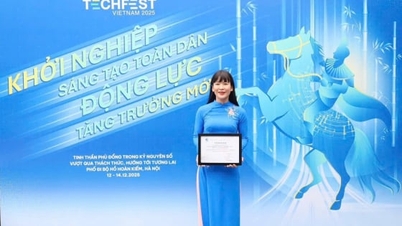


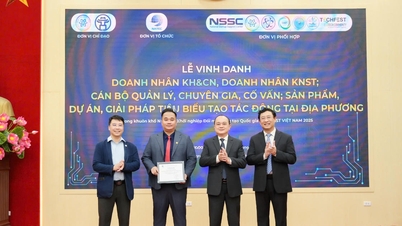
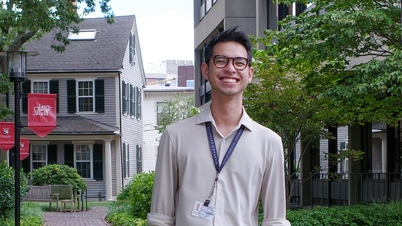





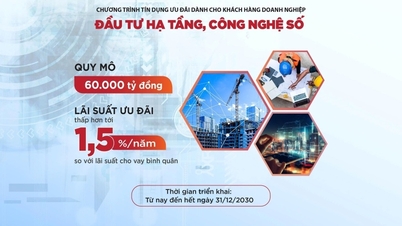









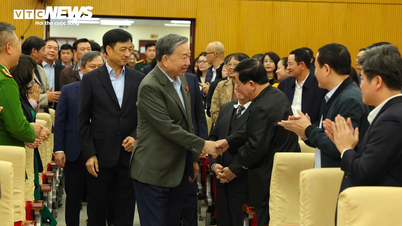








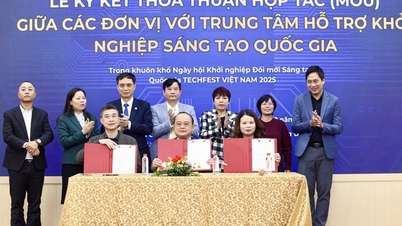








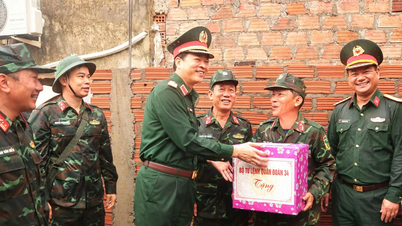














Comment (0)